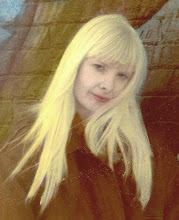
Gossip columist, actress. Born Elda Furry, on June 2, 1890, in Hollidaysburg, Pennsylvania. One of nine children, Furry studied singing at the Carter Conservatory of Music in Pittsburgh during high school. At the age of 18, she ran away after her Quaker parents rejected her plans to pursue a career in musical theater. She worked as a chorus girl and appeared in amateur theater productions before making her Broadway debut in 1909 in a small role in The Motor Girl. In 1913, Furry appeared with the popular comedic actor, and notorious womanizer, DeWolf Hopper in the musical comedy A Matinee Idol. Later that same year, she became the much-older Hopper's fifth wife.
She took the name Hedda Hopper in 1919; the first name was reportedly chosen by a numerologist. After making her big screen debut in the 1916 silent film The Battle of Hearts, Hopper found success in Hollywood as a character actress for Metro-Goldwyn-Mayer (MGM), appearing in over 100 films over the next three decades. In 1922, she and DeWolf Hopper divorced.
By the mid-1930s, Hopper was working as a freelance actress (without a studio contract) and her film career had fallen into a slump. Her famous sense of style and outspoken personality led to jobs at Elizabeth Arden cosmetics and as a fashion commentator on a Hollywood radio station. In 1937, the Esquire Feature Syndicate was looking for a Hollywood columnist and found one in Hopper. Untried, her column was sold to 13 papers and a career was launched.
When the column began appearing in the prestigious Los Angeles Times, her status shot upward and her power grew. Her column appeared in 85 metropolitan papers, 3000 small-town dailies, and 2000 weeklies. When she replaced John Chapman at The New York Daily News, she picked up an additional audience of 5,750,000 daily and 7,500,000 on Sunday. She appeared on weekly radio shows and wrote two best sellers: From Under My Hat and The Whole Truth and Nothing But.
Hedda's large, flamboyant hats became her trademarks--she reportedly bought about 150 new hats a year. Hopper also acquired a reputation for journalistic bitchiness, which actually made her more popular. She took on anything or anyone who went against her set of "American" values. She doggedly spoke out against the threat of communism, real or imagined, in Hollywood. During the infamous "blacklisting" era, she destroyed the reputations of many people with hearsay. She badgered Charlie Chaplin about the way he used women and America. She blasted Louis B. Mayer for lacking generosity. Her 10-year feud with her rival columnist, Louella Parsons, was legendary. Hopper never remarried and lived to see her son, William (Bill) DeWolf Hopper Jr., achieve some success as Paul Drake on the TV drama Perry Mason. She died of pneumonia in 1966.

Gossip columist, actress. Born Elda Furry, on June 2, 1890, in Hollidaysburg, Pennsylvania. One of nine children, Furry studied singing at the Carter Conservatory of Music in Pittsburgh during high school. At the age of 18, she ran away after her Quaker parents rejected her plans to pursue a career in musical theater. She worked as a chorus girl and appeared in amateur theater productions before making her Broadway debut in 1909 in a small role in The Motor Girl. In 1913, Furry appeared with the popular comedic actor, and notorious womanizer, DeWolf Hopper in the musical comedy A Matinee Idol. Later that same year, she became the much-older Hopper's fifth wife.
She took the name Hedda Hopper in 1919; the first name was reportedly chosen by a numerologist. After making her big screen debut in the 1916 silent film The Battle of Hearts, Hopper found success in Hollywood as a character actress for Metro-Goldwyn-Mayer (MGM), appearing in over 100 films over the next three decades. In 1922, she and DeWolf Hopper divorced.
By the mid-1930s, Hopper was working as a freelance actress (without a studio contract) and her film career had fallen into a slump. Her famous sense of style and outspoken personality led to jobs at Elizabeth Arden cosmetics and as a fashion commentator on a Hollywood radio station. In 1937, the Esquire Feature Syndicate was looking for a Hollywood columnist and found one in Hopper. Untried, her column was sold to 13 papers and a career was launched.
When the column began appearing in the prestigious Los Angeles Times, her status shot upward and her power grew. Her column appeared in 85 metropolitan papers, 3000 small-town dailies, and 2000 weeklies. When she replaced John Chapman at The New York Daily News, she picked up an additional audience of 5,750,000 daily and 7,500,000 on Sunday. She appeared on weekly radio shows and wrote two best sellers: From Under My Hat and The Whole Truth and Nothing But.

Hedda's large, flamboyant hats became her trademarks--she reportedly bought about 150 new hats a year. Hopper also acquired a reputation for journalistic bitchiness, which actually made her more popular. She took on anything or anyone who went against her set of "American" values. She doggedly spoke out against the threat of communism, real or imagined, in Hollywood. During the infamous "blacklisting" era, she destroyed the reputations of many people with hearsay. She badgered Charlie Chaplin about the way he used women and America. She blasted Louis B. Mayer for lacking generosity. Her 10-year feud with her rival columnist, Louella Parsons, was legendary. Hopper never remarried and lived to see her son, William (Bill) DeWolf Hopper Jr., achieve some success as Paul Drake on the TV drama Perry Mason. She died of pneumonia in 1966.

No comments:
Post a Comment